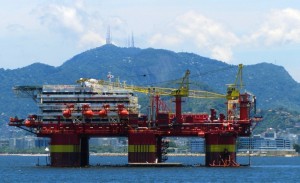 Dutch UV manufacturer bestUV was selected to deliver NIPH (Norwegian Institute of Public Health) approved KappaLine UV systems to be installed on a ‘semi-submersible’ accommodation platform or ‘hotel on sea’.
Dutch UV manufacturer bestUV was selected to deliver NIPH (Norwegian Institute of Public Health) approved KappaLine UV systems to be installed on a ‘semi-submersible’ accommodation platform or ‘hotel on sea’.
A ‘semi-submersible accomodation platform’ has columns and pontoons to cause the structure to float. It can be moved from place to place to any location where extra lodging is needed.
The KappaLine UV systems will be used for disinfection of drinking water for over 400 single bed cabins on the accomodation platform.
The platform is built in compliance with all the latest rules and regulations within the Norwegian sector. According to these regulations the UV systems must be biodosimeteric validated by an independent third party followed by approval of the NIPH ‘Liste B’, as the platform will operate in the norwegian part of the North Sea.
The KappaLine is compact, has a very small footprint, uses unique high-efficient low-pressure UV lamps. Compared to similar compact medium-pressure UV systems the KappaLine uses abt. 3x less power consumption and provide 3x longer lamp life.

